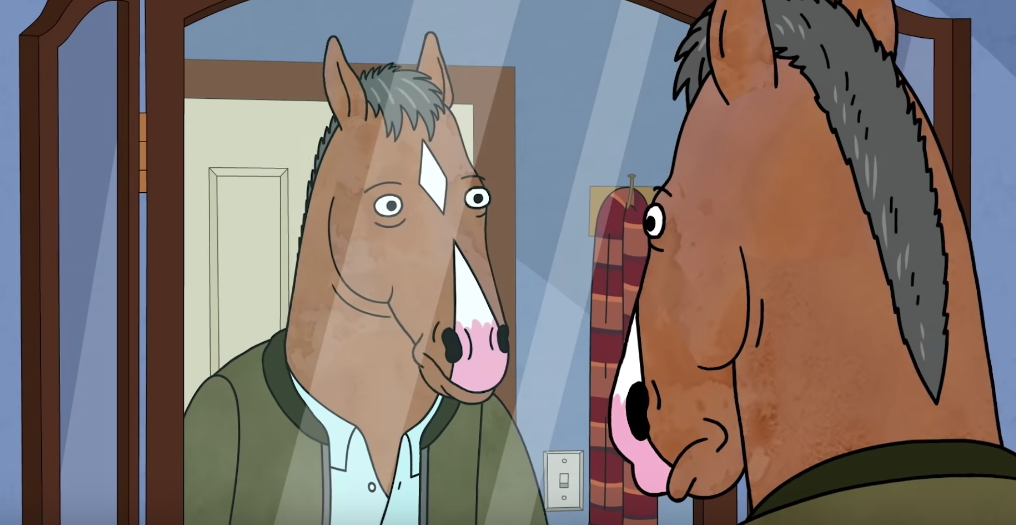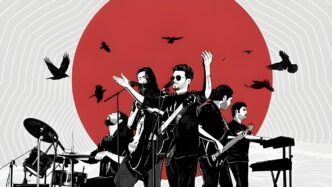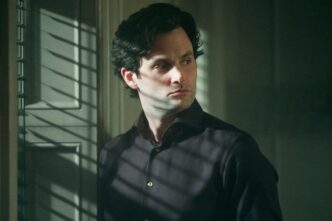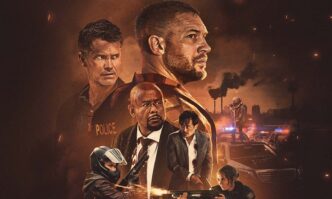In some ways, Bojack Horseman is one of the last remnants of an earlier era in television: the era of ‘difficult men’. Mad Men ended almost five years ago. Like Don Draper, Bojack Horseman often ends up exercising his power over others to hurt people around him, especially those close to him. While Bojack has spent a considerable amount of time trying to get better, his past finally catches up to him in these final eight episodes, and it’s not a pretty sight to see.
After going through rehab, Bojack has finally made a turn for the better: he’s an acting professor at Wesleyan University in Connecticut and attends AA meetings regularly. He’s not just good at his job, he’s genuinely fulfilled by it, and his students look up to him, often trying to win his approval in hilarious ways, such as by repeatedly breaking into his AA meetings. When two reporters start knocking around to investigate Bojack’s role in Sarah Lynn’s death, however, his world comes crashing down. Bojack’s turn to the better was unearned, and this final stretch of episodes go a long way in tearing him down for many of the things he has done.
Along with Bojack, the show also explores other characters’ arcs, such as Dianne trying to write a book while on antidepressants in the episode Good Damage.
She wants to write a book on damage, and how that can help people become better, but she finds it nigh impossible to tap into the pain and insight needed to write such a book. This rang true to me: those who are depressed often feel a certain way, that makes you see the pain as, if not warranted, but at least meaningful. At one point, she comes up with a fun, peppy story of a teenage girl detective operating in mall food courts, and the possibility of sticking to this story makes her balk, which means that she would have to abandon the book she had wanted to write since she was a little girl.
The central MeToo storyline is handled with sincerity and empathy. It not only addresses Bojack’s mistakes, but also shows great insight into how women empowerment is given lip service without adequately catering to it.
Bojack believes that he’s a different person now and thus shouldn’t be punished for his old mistakes. But that’s how it often works, and while the public initially absolves him when he goes public with an interview, a follow up interview with the same host finds Bojack in knots trying to handle questions about all the ways he has screwed up the lives of women around him. He soon finds himself out of his teaching job, and as the months pass, he starts to crack and give in to old demons.
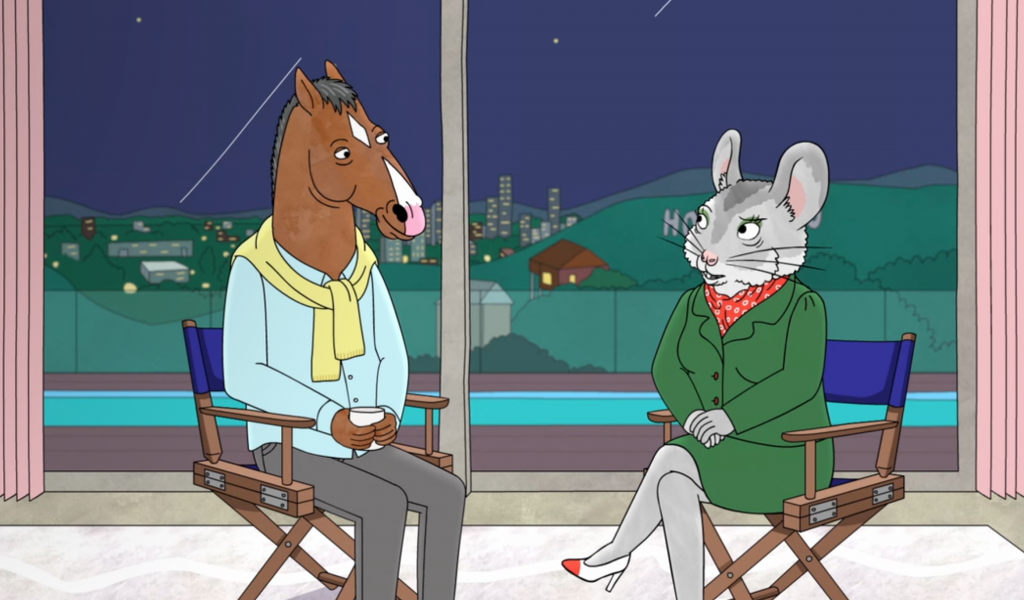
Raphael Bob-Waskberg wanted to turn these two halves of the final season into two full seasons, and it shows. Some parts of this half season feel uneven, as when Bojack tries to find his way back into relevance through starring in an irreverent film called the Horny Unicorn. However, it peaks during the penultimate episode, The View from Halfway Down, where Bojack suffers a surreal hallucination where he meets all the dead people in his life.
It’s one of the show’s finest episodes, and could have doubled as a shocking finale.
Each of the characters featured get their own ‘exits’ in meaningfully haunting ways, and when Bojack realizes what’s happening, his desperation to escape a seemingly inevitable end strikes too close to home.
The final episode, Nice While it Lasted, defuses some of the tension of the penultimate episode, giving a fitting, often sweet denouement to both Bojack and others like Dianne, Princess Carolyn and Todd. The show doesn’t end on a heavily depressing note or an uplifting one, but somewhere in the middle. It represents hope for the characters: despite their damage and what they have done, they can get to a better place in their lives, provided they put in the work for it.
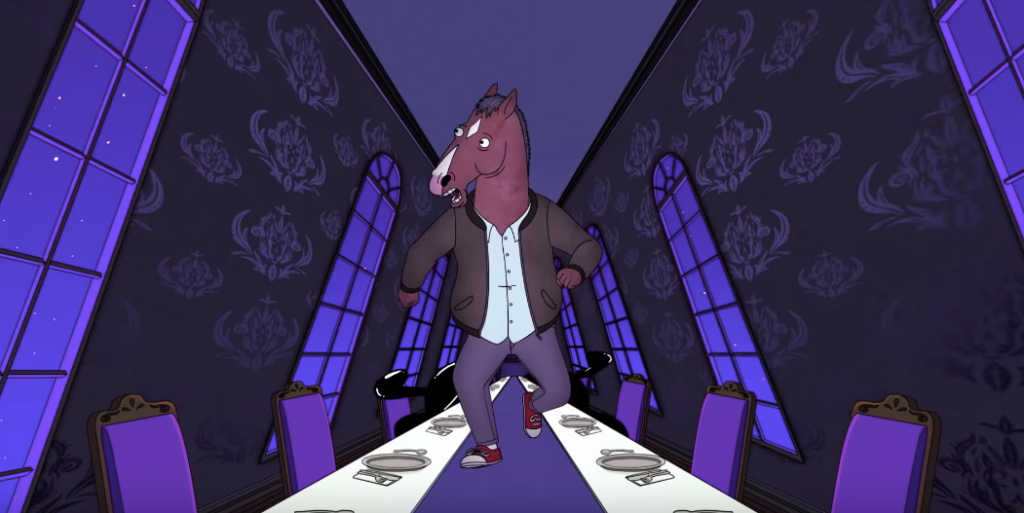
I have always had a personal connection to Bojack Horseman, especially due to the way it portrays depression. The show’s duration stretched through various stages of my own battles with depression, and it feels encouraging to see Bojack end the show as a humanized character. Dianne’s struggles with depression also rings true, especially with her realization that all the damage she suffered didn’t necessarily make her a better person and it was, perhaps, all for nothing.
As tense as these final episodes are, they are still hilarious in the right ways. There’s a clever gag with Lazy Susans and also one with Bojack trying to shoo away a humanoid bird who’s flown in through the window. Bojack Horseman ends it run in much the same way its characters do: more mature and world-weary, but finding comfort in its own niche in the universe.
When the dust settles, this may as well be regarded as the greatest animated drama series of our time, but it doesn’t feel so self-important as other comparable dramas such as Breaking Bad do.
The show doesn’t end on quite the memorable way as those dramas did, but it’s a good ending nonetheless. Now, like Bojack and Dianne, we have to figure out our lives after the show and move on.
That’s easier said than done.
